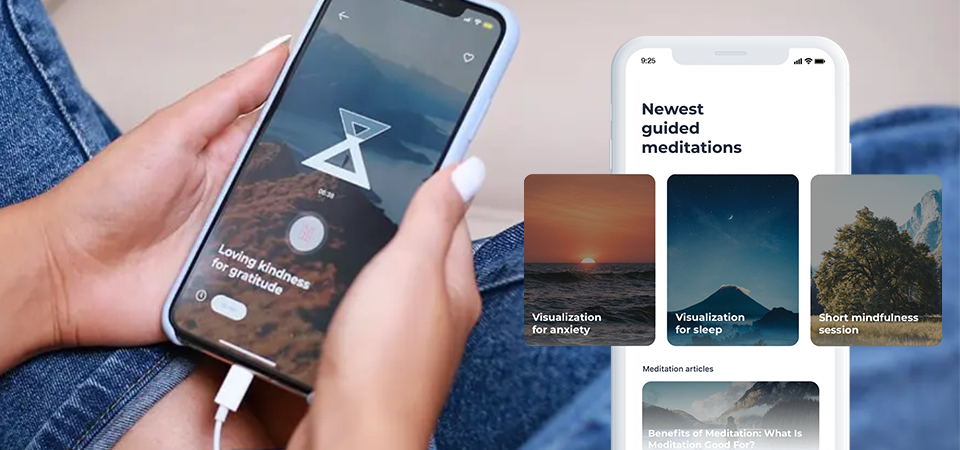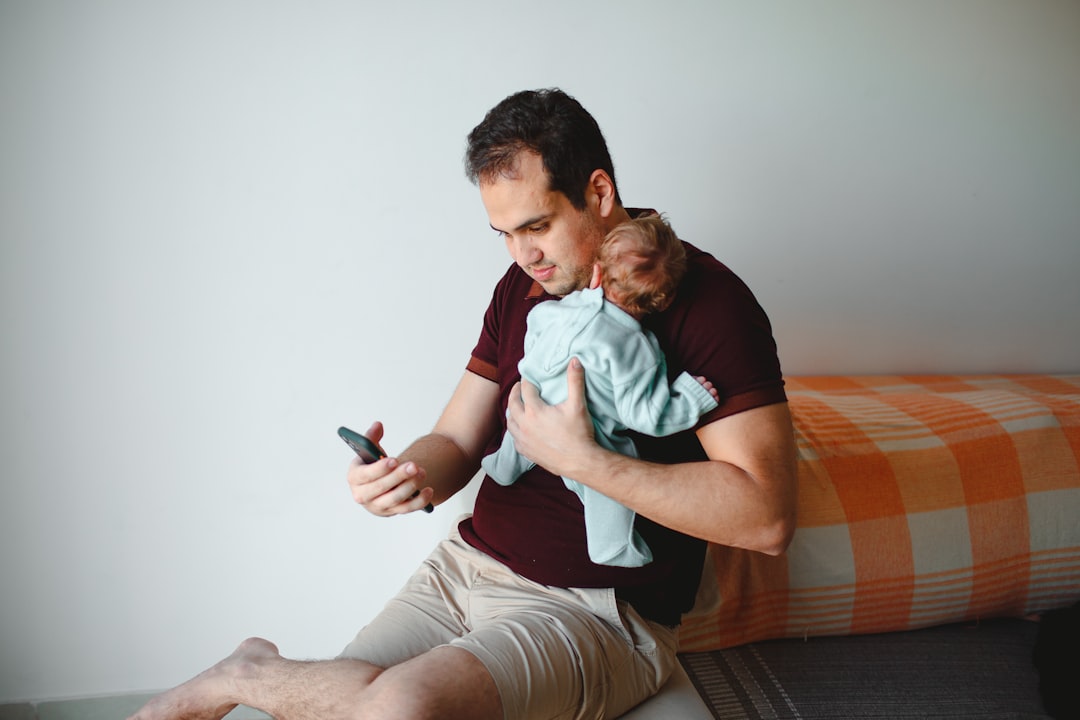As a parent, I know firsthand how challenging it can be to find even five minutes of peace in a day filled with school pickups, meal prep, work deadlines, and bedtime battles. The best app for busy parents isn't just about meditation—it's about finding tools that actually fit into the chaos of real family life. After years of trying to squeeze mindfulness into my packed schedule, I've discovered that the right combination of apps can genuinely help create pockets of calm, even when your toddler is having a meltdown in the grocery store.
Declutter The Mind: Your Gateway to Practical Mindfulness

When I first started looking for meditation resources that would work with my unpredictable parenting schedule, Declutter The Mind became my go-to solution. What sets it apart for busy parents is its realistic approach to meditation—you're not expected to sit in perfect silence for 30 minutes. Instead, you'll find short guided sessions that acknowledge the reality of parenting life.
The app offers meditations specifically designed for new parents, dealing with feeling overwhelmed, and finding calm during chaotic moments. I particularly appreciate the variety of meditation timers and breathing exercises like the 4-7-8 breathing technique that you can do while your kids are playing nearby or even during those precious few minutes in the car before school pickup.
The 30-day meditation challenge helped me build a sustainable practice by starting with just three minutes a day. As someone who used to think I needed an hour of uninterrupted time to meditate "properly," this was a game-changer.
Forest: Gamifying Focus Time
Forest takes a completely different approach to helping busy parents find calm by gamifying the process of staying focused and present. The concept is simple: you plant a virtual tree and set a timer for however long you want to focus—whether that's 10 minutes of mindful eating during lunch or 25 minutes of uninterrupted work time while the kids nap.
What makes Forest particularly brilliant for parents is that it acknowledges our phone addiction while helping us break free from it. If you try to use your phone during your focus session, your tree dies. Over time, you build a beautiful forest that represents all the moments you've chosen presence over distraction.
I've found Forest especially helpful during those moments when I want to be fully present with my children but keep getting pulled toward my phone. Setting a 30-minute timer while we're doing mindfulness activities or just playing together has helped me be more engaged and less scattered.
Insight Timer: Community and Variety
Sometimes what busy parents need most is the reminder that we're not alone in this journey. Insight Timer offers a vast library of free meditations, but what I love most is the community aspect. You can see who else around the world is meditating at the same time, creating a sense of connection even when you're sitting alone in your bedroom at 5:30 AM—the only quiet time available.
The app includes specific content for parents, including meditations for postpartum anxiety, dealing with tantrums, and finding patience during difficult parenting moments. The timer feature is also excellent, offering various bell sounds and background music options that won't startle you (or wake sleeping children) when your session ends.
Building Consistency with Community Support
One feature that's particularly motivating is the ability to follow friends and see their meditation streaks. As parents, we often feel isolated in our struggles, so knowing that other parents in your network are also prioritizing their mental health can provide the encouragement needed to maintain consistency.
Calm: Sleep and Relaxation Focus
Let's be honest—as parents, sleep issues are often our biggest challenge. Calm has built much of its reputation around helping people sleep better, which is why it deserves a spot on any busy parent's phone. The app offers excellent bedtime stories for adults (yes, you read that right), sleep meditations, and nature sounds that can help you wind down after particularly challenging parenting days.
The daily calm sessions are typically 10 minutes or less, making them manageable even on the busiest days. I've found their content around managing stress particularly relevant, as parenting often feels like the most demanding job with the least amount of training.
What sets Calm apart is its production quality—the narrator voices are soothing, and the background music is carefully designed to promote relaxation. This attention to detail makes a real difference when you're already overstimulated from a day of children's voices, TV shows, and general household chaos.
Habitica: Turning Self-Care into a Game
Here's where we get creative with defining apps that help busy parents find calm. Habitica is a habit-tracking app that turns your daily routines into a role-playing game. You create an avatar, and as you complete tasks and build positive habits, your character levels up and earns rewards.
Why is this relevant for finding calm? Because often, our lack of peace comes from feeling overwhelmed by all the things we're not getting done. Habitica helps you break down self-care and household management into manageable pieces while making the process actually enjoyable.
I use Habitica to track everything from drinking enough water and taking my vitamins to completing a five-minute morning meditation and doing a brief gratitude practice before bed. The gamification aspect provides the motivation that willpower alone often can't sustain during exhausting parenting phases.
Creating Sustainable Self-Care Routines
The key insight here is that calm often comes not from single moments of peace, but from the cumulative effect of small, consistent self-care practices. Habitica helps you build these practices into your routine without adding more pressure or guilt to your parenting experience.
Headspace: Structured Learning Approach
Headspace takes a more educational approach to mindfulness, offering courses and series that help you understand not just how to meditate, but why certain techniques work. For parents who like to understand the science behind what they're doing, this can be particularly appealing.
The app includes specific content for parents, including sessions on patience, dealing with difficult emotions, and maintaining perspective during challenging phases of child-rearing. The courses are well-structured, building from basic concepts to more advanced practices over time.
What I appreciate about Headspace is that it doesn't just tell you to "breathe and relax." Instead, it provides context about why your mind might be racing and offers specific techniques for different situations. This educational component can be especially valuable for parents who are dealing with feelings of overwhelm and want to understand what's happening in their minds and bodies.
Ten Percent Happier: Practical Skepticism Welcome
If you're a parent who's naturally skeptical about meditation and mindfulness practices, Ten Percent Happier might be your perfect entry point. Created by news anchor Dan Harris, the app takes a no-nonsense approach to meditation that strips away much of the mysticism while focusing on practical benefits.
The app includes interviews with meditation teachers, practical courses, and guided meditations that feel grounded and realistic. For busy parents who don't have time for philosophical discussions about enlightenment but do want concrete tools for managing stress and improving focus, this approach can be refreshing.
The content around managing anxiety and building resilience is particularly relevant for parents navigating the constant low-level stress that comes with being responsible for other human beings' wellbeing.
Combining Apps for Maximum Impact
Here's what I've learned after years of trying different approaches: the best strategy for busy parents isn't necessarily finding one perfect app, but rather creating a toolkit that serves different needs throughout your day.
I might start my morning with a quick session from Declutter The Mind, use Forest during focused work time, turn to Calm for bedtime relaxation, and rely on Habitica to track my consistency with these practices. This multi-app approach acknowledges that parenting requires flexibility—some days you need a 3-minute breathing exercise, other days you have 15 minutes for a longer mindfulness practice.
The key is removing the pressure to be perfect and instead focusing on building sustainable practices that actually fit into your real life. Whether you're hiding in the bathroom for two minutes of box breathing or doing a walking meditation while pushing the stroller, the goal is progress, not perfection.
Making It Work Long-Term
The most successful approach I've found is starting incredibly small—even 30 seconds of intentional breathing counts as mindfulness practice. These apps provide the structure and guidance to gradually expand your practice as it becomes more natural and as you find more opportunities throughout your day.
Remember, finding calm as a busy parent isn't about achieving some zen-like state of perpetual peace. It's about developing tools that help you navigate the inevitable challenges with more patience, perspective, and presence. The right combination of apps can provide exactly that support, meeting you wherever you are in your parenting journey and helping you build the resilience that both you and your children need.







